Jakarta, MINA – The National Amil Zakat Agency (Baznas) has made the City of Bengkulu the first Sustainable Development Goals (SDGs) in Indonesia. The decision to make Bengkulu the SDGs city was because the city committed to implementing 17 SDGs points.
Deputy Mayor of Bengkulu, Dedy Wahyudi said he was grateful that Bengkulu was chosen as the city of SDGs. Thus, Bengkulu residents get more opportunities to improve their lives. The Bengkulu community is also ready to implement programs to achieve the objectives of SDGs.
“So far, the city government has carried out various programs that encourage the achievement of SDGs goals, we are grateful that this collaboration will help Bengkulu residents to have a better life both materially and spiritually,” Dedy said through written information on Thursday (11/15).
He also emphasized that Bengkulu community are ready to implement programs of SDGs goals.
Also Read: MUI Warns Government of Risks Behind Proposed Stabilization Force Deployment to Gaza
Municipal SDGs are cities that are committed practicing 17 sustainable development goals in their lives.
Previously, Bengkulu SDGs has been just launched in Sumberjaya Sub-District, Kampung Melayu Sub-District, Bengkulu City on Wednesday. This launching is as a result of cooperation from the government, National Zakat Agency (BAZNAS), Amil Zakat Institutions (LAZ), Indonesian Philanthropy, campus and non-governmental organizations.
While from the government elements involved the Bengkulu Provincial Government and Bengkulu City Government.
Dedy hopes that the Sumberjaya Sub-District, which will be the initial location for SDGs City programs, willing to invite other villages in the city of Bengkulu according to the needs and potential of the local area.
Also Read: Prof. El-Awaisi: The Mandate to Liberate Al-Aqsa Began at Prophethood
In the Talk show, there were also presented members of BAZNAS, Nana Mintarti and Co-Chair of Indonesian Philanthropy, Erna Witoelar.
Nana Mintarti said, every institution that cooperates in this program must help each other to encourage the development of the economic, education, health and humanitarian sectors that are in harmony with the SDGs goal points.
“BAZNAS conducts community empowerment through a waste management program into plastic seeds and helps small and medium businesses (SMEs) to have trade outlets and can package products better,” she explained.
In addition, BAZNAS also provides encouragement from the spiritual side through ulema who will build awareness in environmental preservation so that the community can quickly adjust to the SDGs goals.
Also Read: Mount Semeru Erupts, Trapping Dozens, Forcing Evacuations in East Java
“The community is also given a waste processing machine that can produce fertilizers, and handicraft products that can improve the economy of the surrounding community,” she said.
In strengthening SMEs, BAZNAS helps to build selling outlets in the dock area and strategic mangrove tourism areas. Other SMEs get product packaging assistance so they have more selling value.
Co-Chair of Indonesian Philanthropy, Erna Witoelar said that her party encouraged and facilitated this partnership because it is in line with the principle of “integration” in the SDGs.
“Through partnerships, Bengkulu’s urban problems can be addressed together. This will be a model of partnership that can be emulated for other SDGs programs, “she said. (T/Sj/RS5)
Also Read: President Prabowo Inaugurates UAE-Funded Emirates–Indonesia Cardiology Hospital in Solo
Mi’raj News Agency (MINA)






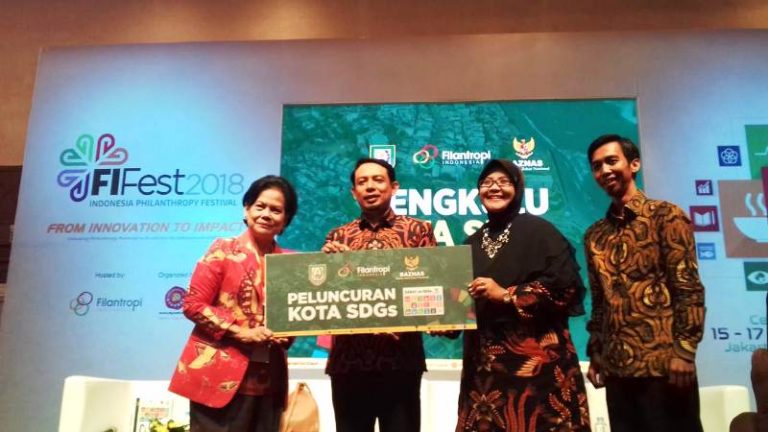




![Israeli tanks and APC’s gather by the Israeli – Lebanese border. Amid Israel’s escalating campaign against Hezbollah in Lebanon on September 30, 2024. [Erik Marmor/Getty Images]](https://en.minanews.net/wp-content/uploads/2024/10/IMG_20241001_203226-300x197.jpg)




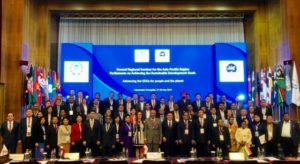
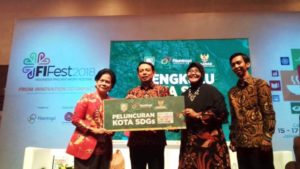
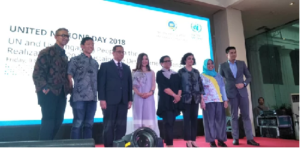
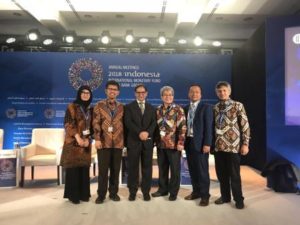
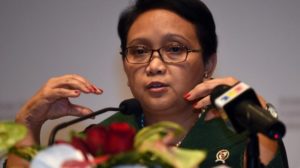
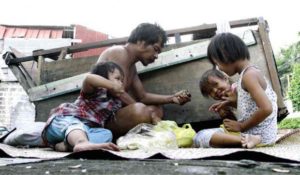





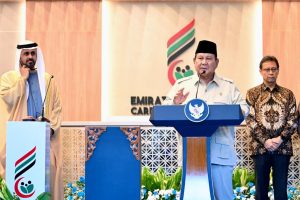





 Mina Indonesia
Mina Indonesia Mina Arabic
Mina Arabic